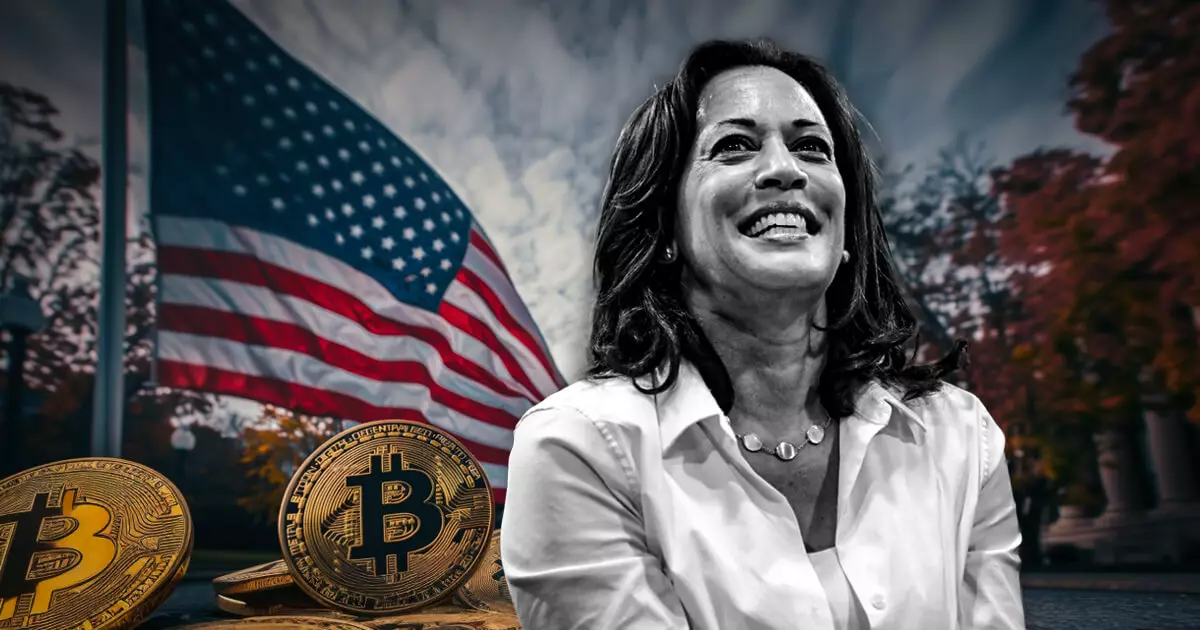As the race for the White House heats up, investors, developers, and enthusiasts within the cryptocurrency space are closely examining how the candidates’ policies could shape the future of digital assets in the United States. Alex Thorn of Galaxy Digital recently released a comprehensive ‘policy scorecard’ that evaluates the stances of key presidential candidates on several critical issues pertaining to cryptocurrency. This analysis sheds light on how each candidate might influence the regulatory atmosphere for an industry striving for legitimacy and recognition in mainstream finance.
Evaluating the Candidates’ Positions
Thorn’s scorecard positions Vice President Kamala Harris as a potential ally for the crypto industry compared to the current administration under President Joe Biden, although neither candidate is viewed as particularly favorable. Harris’s approach could be seen as a middle ground that may reduce some of the friction caused by Biden’s policies. However, the most optimistic outlook comes from a potential return of Donald Trump to the presidency, with his policies predicted to be significantly pro-crypto.
One of the striking aspects of this assessment is how Harris’s strategy pivots away from that of Biden, particularly on issues surrounding taxation and Bitcoin mining. Harris has expressed intentions to reverse tax cuts for the wealthiest Americans, which could include implications for crypto. Analysts view this as adverse for the industry, whereas Trump’s plans appear to favor clarity and potential friendliness toward digital asset taxation.
Another substantive divergence between the candidates arises from their policies on Bitcoin mining. Biden’s administration has taken a more aggressive stance, proposing a hefty tax on mining operations, which stirs unease among industry players. In contrast, Harris’s rhetoric suggests a softer approach—though still not entirely benign. According to Galaxy’s team, while Harris may not be on the offensive like Biden, she is also not wholly accommodating.
Trump’s disposition toward Bitcoin mining is notably different; dubbed a champion for the process, he has met with miners, acknowledged their contributions to domestic manufacturing, and received backing from prominent mining enterprises. This contrast highlights not just a philosophical difference regarding energy consumption and environmental concerns but also a deeper economic viewpoint regarding America’s competitive edge in the global market.
Banking policies also emerge as a point of contention among the candidates. Harris hints at potentially relaxing Biden’s “Operation Chokepoint 2.0,” suggesting an awareness of crypto’s dependency on banking access. This could signal a more accommodating environment for cryptocurrency startups and other players requiring traditional banking partners. Conversely, Trump’s position is ardently pro-crypto, aiming to dismantle restrictive banking policies altogether while standing against the establishment of a central bank digital currency, which many in the industry fear could stifle innovation.
Given the unpredictable nature of cryptocurrencies, banking access can make or break the groundwork for nascent projects. For players in the altcoin sector, the regulatory landscape could create opportunities or challenges, depending significantly on which candidate prevails.
One fascinating component of Thorn’s analysis is the suggestion that Bitcoin (BTC) could remain largely insulated from the regulatory fluctuations based on who wins the election. This level of stability contrasts starkly with altcoins, whose future could hinge on the regulatory clarity established by a Trump administration. A Trump victory could unleash a wave of reforms that leaves altcoins poised for significant growth, particularly projects like Uniswap’s UNI.
On the other hand, a Harris administration may introduce risks for altcoins through stricter regulations or tax impositions that disrupt their operational frameworks. With such variability looming, those invested in the evolving sector of cryptocurrencies must keep a keen eye on the political landscape and the signals emanating from each campaign.
As the election date approaches, stakeholders in the crypto space must evaluate how their interests may align with each candidate’s policy proposals. The stakes are high—both for the future of digital assets and for the broader financial ecosystem. While experts like Thorn provide critical analyses to navigate this complex environment, much remains uncertain. Still, the relationship between politics and cryptocurrency is set to be a critical factor in shaping the future of this dynamic industry. Understanding the implications of political strategies on this world will be vital for anyone looking to take part in the crypto revolution.















Leave a Reply